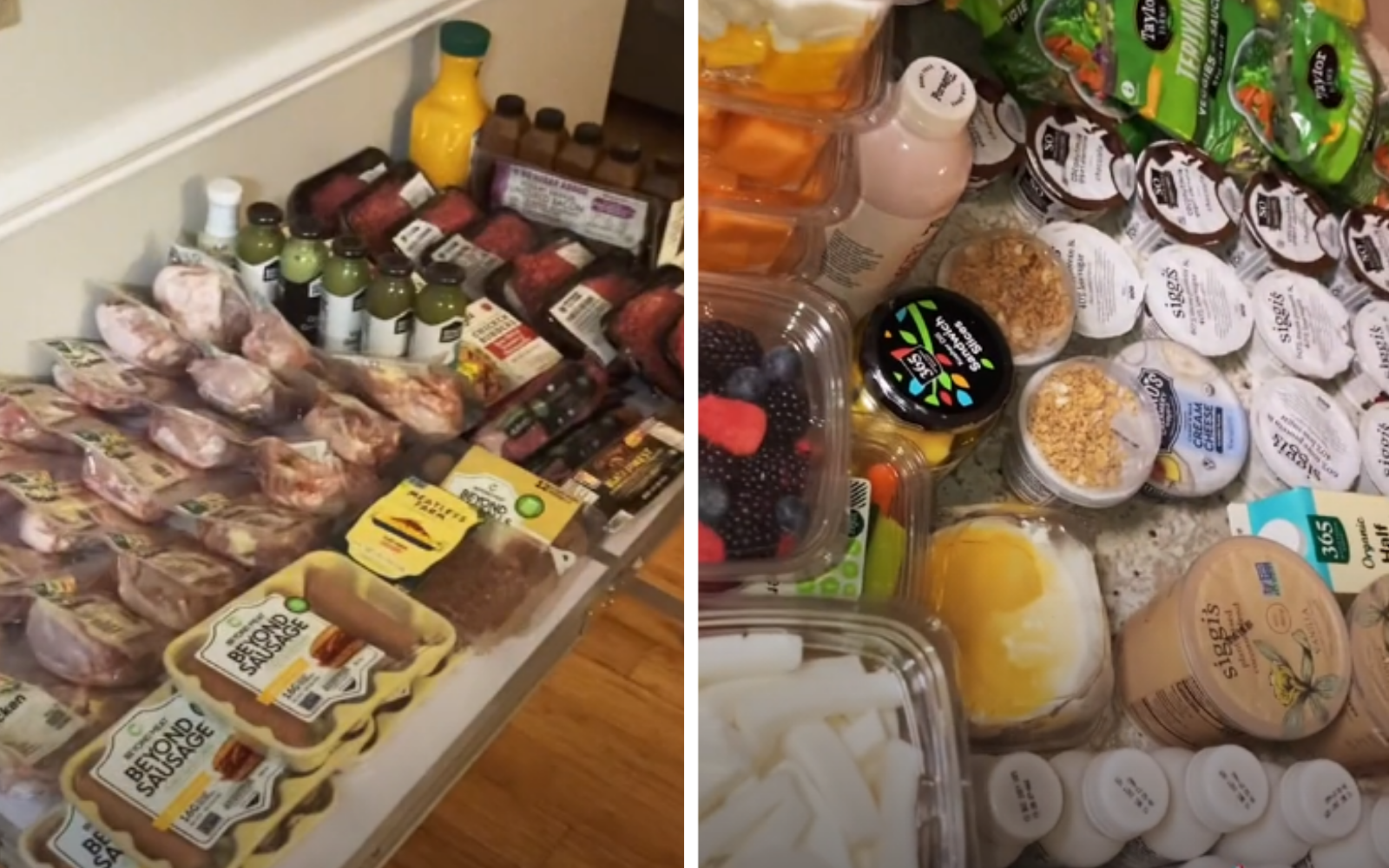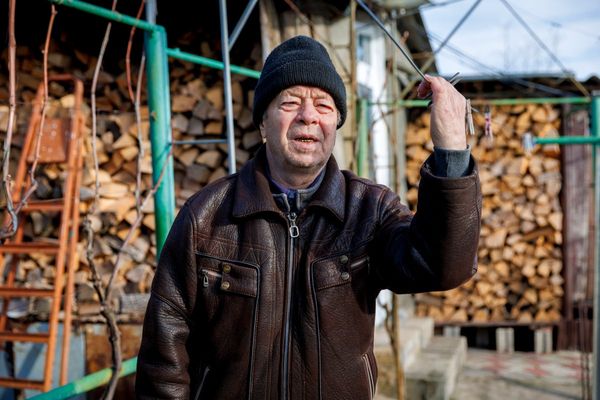
When it comes to lowering your grocery bill, some people might look out for discounted products, eat less meat or shop around for the best price.
But one TikToker takes this to the next level by dumpster diving in supermarket bins, often finding food that seems perfectly good, despite having been thrown away.
Instead of the unexpired food going to a landfill, @dumpsterdivingfreegan uses some of the food for herself and donates the rest to local food banks.
In a video with over three million views, she claims to have found a staggering amount of food in a Whole Foods dumpster.
In the clip she revealed that she managed to find organic chicken and beef, fruit, vegetables, bottles of juice, and a turkey worth $65.52.
Sign up to our new free Indy100 weekly newsletter
“Last night I found enough meat to feed an entire community,” she said as she showed her haul. “It was 33 degrees Fahrenheit outside so everything here was still super cold and had been recently tossed.
“Everything had been thrown out on or before its best by date and as we know, best by dates are not hard rules and everything is still good to consume.”
She added: “I’ve never seen any discount stickers on any of the items that Whole Foods has thrown out, and I left so much more behind.”
As she filmed the haul, on-screen text read: “Nothing featured in this video was recalled - I already checked.”
In the comment section she said that she has survived on scavenged food for nearly two years, and takes safety precautions when she dives. She said she doesn’t feed anyone food without telling them where it comes from, and said she has never gotten ill from diving. She added: “My page is to bring AWARENESS to the obscene waste in the US, I am NOT suggesting that people should be diving.”
In one of her viral clips uploaded at the end of November, she said: “I don’t think people realise just how much is wasted in the United States. All of my videos are taken within a three to five mile radius of my home and honestly, it’s like this everywhere.”
One dumpster she found was “completely full” of packages, boxes, and cases of food.
In the clip, she showed the perishable items that she would keep for herself as well as a mountain of non-perishables that she donated to several local food banks. Her car was full of bread, ready meals, cakes, and other groceries.
Instead of clearing the entire dumpster, she said she usually leaves food for others who may also dumpster dive.
“As someone who grew up in a very food-insecure household it pains me to see this much food go to waste,” she said. “And this is normal. I was on a road trip and every single dumpster that I decided to randomly check had food or items in it.”
In the comments she wrote: “Again, waste like this is NORMAL in the US, but no one wants to talk about it. I always leave PLENTY behind and donate what I can. We need change. I wiped down what I could with disinfectant wipes. I prioritise donating packaged items over perishables because they keep longer and I can drop them off.”
Amazingly, she found cases of unopened wine advent calendars which were tossed on 1 December.
She also found unexpired hand sanitiser, which she distributed to vendors and customers at her local food market.
A few of the TikToker’s clips got reshared to Twitter, with one of the videos racking up over 5.5 million views in just two days.
Some praised the videos, and expressed their anger at how people are going hungry despite there being an abundance of food in the world:
The world produces enough food to feed 10 billion people. Don't convince yourself hunger is an inevitability.
— dominic (@domsbrain1) December 12, 2021
I actually had a guest lecture in college from a professor who fed their whole family like this, year round! They brought in multiple items + asked the class to pick which ones were dumpster dived. We got them all wrong. I recommend ppl read “On Dumpster Diving” by Lars Eighner
— 🌞Pomegranate Supremacy🌞 (@itsjalisa) December 12, 2021
This was taken at my local bagel shop. An entire bin of perfectly good bagels. I live in the Bay Area. I know there are people who would appreciate a bagel. pic.twitter.com/yJLQYXZWbG
— PammaJammaClaus🧑🏾🎄 (@mspammajamma) December 12, 2021
Food scarcity is manufactured by greed
— Fifty Shades of Whey (@davenewworld_2) December 12, 2021
all that damn beyond meat for free... girl don't let me find a dumpster 😭 😩 pic.twitter.com/PmFYPq6D8q
— glizzy banks (@chasemb) December 13, 2021
Food insecurity isn't driven by scarcity, it’s a distribution issue. Luckily, it's one that we're working to solve!
— Food Rescue Hero (@FoodRescueHero) December 13, 2021
We partner w/ #FoodRescue organizations across the country to save this good food and get it delivered to people in need instead. Download @FoodRescueHero to help!
However some Twitter users weighed in and said that sometimes there is a reason why food that seems perfectly good might be tossed.
Former grocer - if cold chain is broken and these perishables come up above safe temp. they can not be sold or given to charity because they can kill people. Not a policy - a law. You are finding these because whole foods is good at following rules - Most grocers just sell it.
— DestroyerBot (@DestroyerBot9) December 12, 2021
Make sure the food you donate is still safe to eat. This is especially directed at things that contain dairy and meat, as bacteria grows in them the fastest
— 🔞Bimbo Bandit (@TheNestSystem) December 13, 2021
A Whole Foods Market spokesperson told Indy100 that each year, they donate millions of pounds of perishable and non-perishable food to local food banks and food rescue agencies across the United States.
Since 2013, they donated approximately 180 million pounds of food through their Grocery Rescue Program, which equates to approximately 150,000,000 mealsâ¯for people in need.
Last year, the retailer donated 27 million meals to food rescue and redistribution programs in the US.
The Amazon-owned grocer is also continuing to expand its Nourishing Our Neighbourhoods program which provides refrigerated vans to community-based food rescue programs across the US. With 28 vans donated, it’s estimated that each van will deliver 242,666,6667 meals over ten years.







